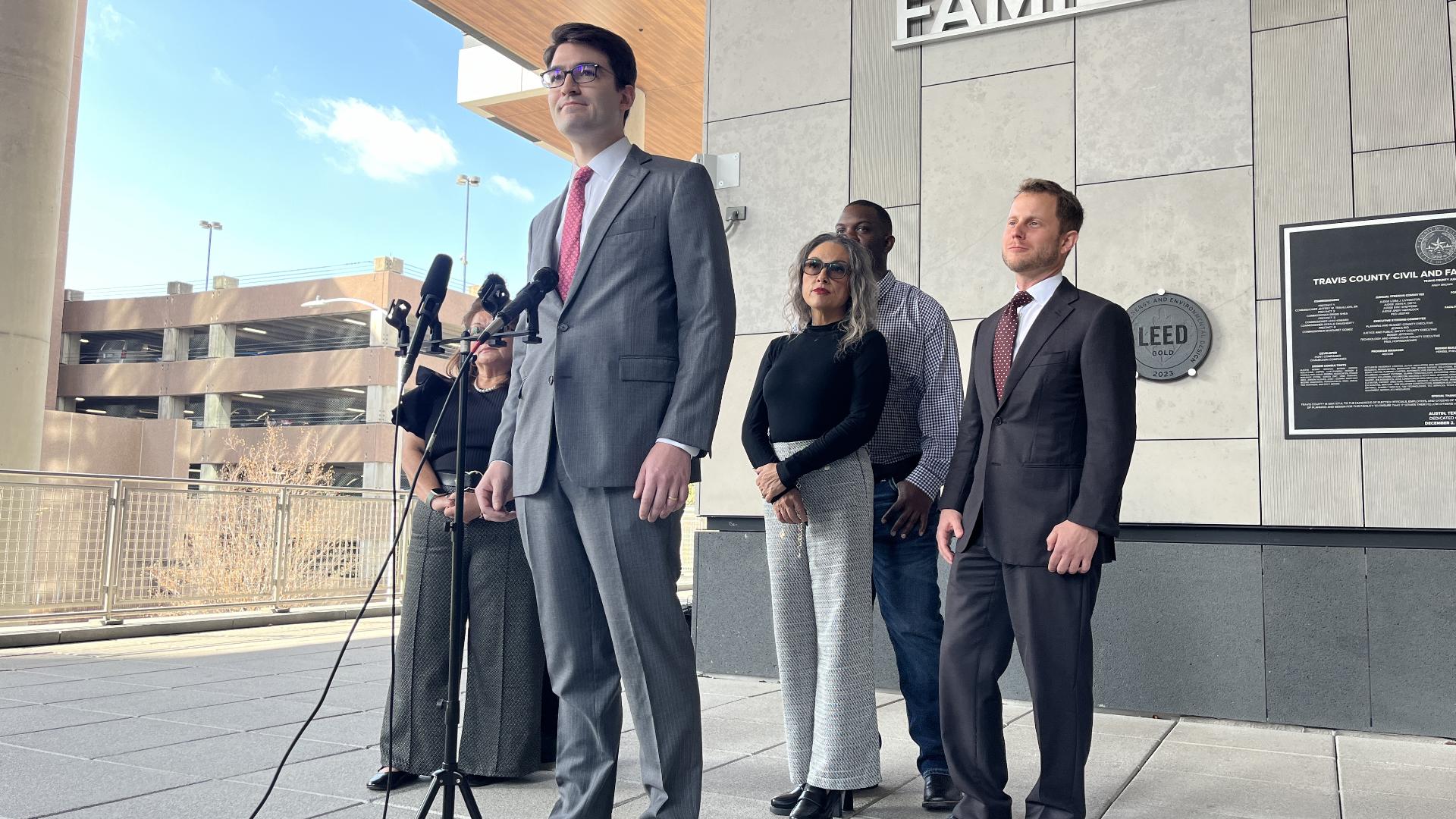AUSTIN, Texas — Two Texas women who are trying to become social workers are suing the state.
They're challenging what they say is an unconstitutional law that bans certain felons from becoming social workers.
Tammy Thompson and Katherin Youniacutt are both grandmothers with master’s degrees in social work. But 20 years ago, they lived very different lives.
Thompson, from Fort Worth, was struggling with a meth addiction after a stressful divorce that left her a single mom of four boys. An altercation with a stranger in 2006 landed her with an assault charge.
“I never knew anything about it for two years until I was pulled over for a traffic violation,” Thompson said. “I was terrified because I had never done anything in my whole life and had never been arrested.”
Thompson was given two years of probation, but her continued use of methamphetamines violated her parole, leading her to serve two years in prison.
Meanwhile, Youniacutt, who now lives in Lubbock, was an alcoholic coping with years of childhood abuse. In 2007, she drove to the supermarket to get cigarettes while intoxicated and ran into an off-duty officer who accused her of cutting him off.
“I got arrested that night. They said I pulled out and hit him with my car, and that's how I caught the assault charge,” Youniacutt said.
Youniacutt received five years of probation, which she violated by leaving the county without permission in the last 23 days of the order. She received an additional five years of probation for that.
Both women say they knew they had to get sober and change. With the help of family and their community, social work is what called to them.
“I passed my licensed master social worker exam, got my master’s degree, my bachelor's,” Thompson said. “I have done so many things to rehabilitate myself in the last 15 years.”
But under current Texas law, both women say none of that work matters. Before 2019, the Texas State Board of Social Worker Examiners could review and deny licenses when someone with a criminal history applied by reviewing their history and current circumstances.
That changed, preventing a list of health care professionals from obtaining licenses automatically if they have a certain felony charge.
“Good intentions were there,” said Will Francis with the Texas chapter of the National Association of Social Workers. “Essentially, they took a list of health care professionals, like doctors, and nurses and others. It turns out social workers and psychologists were both in that list of health care professionals. It ended up impacting social workers in an unintended way.”
Thompson passed her licensing exam in 2021, and Younaicutt passed hers in 2023. Both licenses were automatically denied.
“It was very traumatic for me to know that I've worked this hard to get here, and now I have to look at something else,” Younaicutt said.
Younaicutt appealed the denial twice but was told if she appealed a third time, she would never be able to apply to be a social worker again.
Thompson said it's been frustrating for her as well. She's been offered 11 different job opportunities in the past year, but her criminal history continues to follow her.
“As soon as they run my background, they retract my offers. That is insanity to me. I don't understand how the state can treat their own people in this way,” Thompson said. “It's just unjust because I've done exactly what they asked me to do. I have followed every guideline that the state has asked me to do.”
Younaicutt said not only does it impact their lives, but the lives of her clients as well. The hospital where Younaicutt works created a position for her so she could work as a social worker despite not being licensed. However, it does prevent her from providing certain care without permission.
“It is tying our hands ... to provide that immediate care," Younaicutt said. "It prevents us from moving forward with a client. It does feel like it’s not hurting us as much as it is hurting our clients."
According to Francis, Texas is in desperate need of social workers. He said the state has the biggest need to fill, with 20,000 openings currently in Texas. By 2030, the state will need double the amount to meet the need.
Thompson and Younaicutt are now suing the state to change this law.
“It’s very confusing when we're supposed to believe as social workers that people can change, but that role does not apply to us,” Younaicutt said.
Francis said their office is also working with lawmakers on a bill to have social workers removed from the list of medical professionals that can be denied a license based on certain criminal history.

